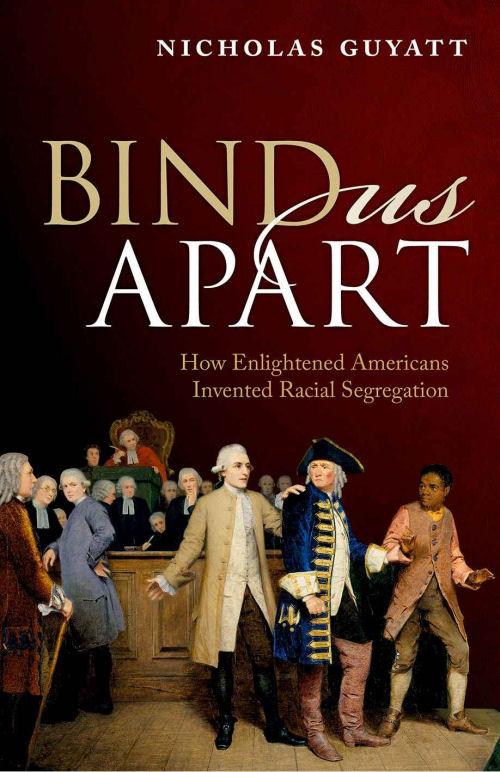Bind us Apart: How Enlightened Americans Invented Racial Segregation.
Bind Us Apart is the story of how ‘enlightened’ Americans — white people who considered themselves to be rational, benevolent and steeped in the principles of the Enlightenment — struggled to extend the principle of “all men are created equal” to Black people and Native Americans in the early United States.
The book explores the wide circulation of egalitarian theories and arguments about race, but tracks the difficulties experienced by these ‘enlightened Americans’ in actually putting their principles into practice: by abolishing slavery, for example, or extending citizenship to Black and Indigenous people. Instead, liberal whites in the early American republic crafted a new idea: that people of colour might be persuaded to create their own communities beyond the United States, committed to liberty and republicanism but safely separated from white Americans.
These plans became known as ‘colonization’, and were widely mooted for both Black and Indigenous people in the first decades of the nineteenth century. Bind Us Apart explores the roots and effects of this separationist thinking, and argues that segregation was ‘liberal’ before it was conservative, and northern or national before it was southern.

Guyatt, Nicholas. Bind Us Apart : How Enlightened Americans Invented Racial Segregation. Oxford University Press, 2016
The book was reviewed by the New York Review of Books, the New Republic, the New York Times and the Washington Post, among others.
You can hear Nicholas Guyatt discussing the book in 2016 on the Ben Franklin’s World podcast; and revisiting Bind Us Apart in 2020 on the New Books Network podcast. That 2020 conversation also takes in the New York Times’s groundbreaking 1619 Project, and Guyatt’s op-ed piece on 1619 for the New York Times in October 2020.
